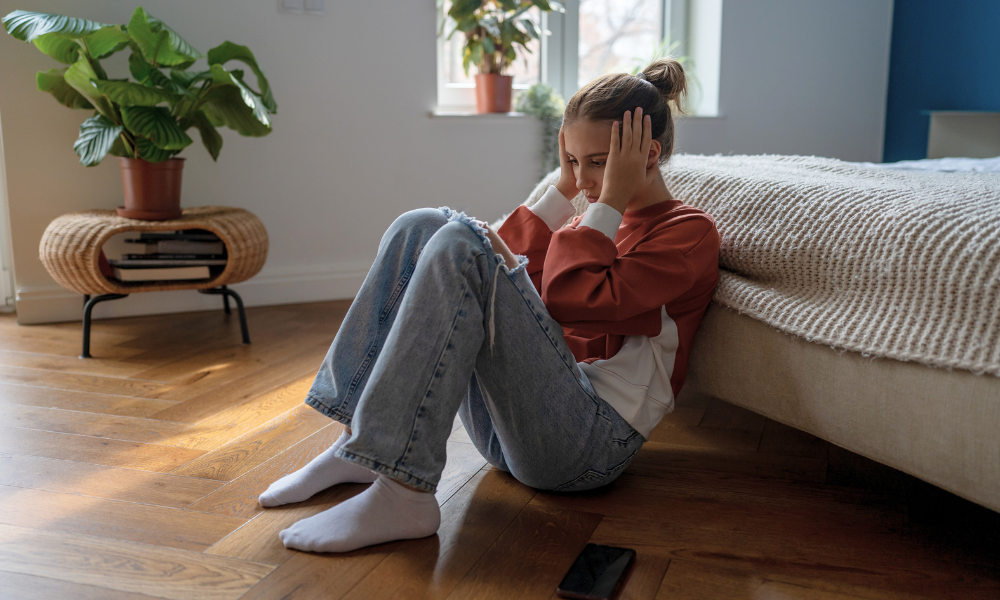When you go into the grocery store do you look around to see who is nearby — just in case anyone looks suspicious? Do you extra cautiously note your neighbors before diving into your bucket of popcorn at the movie theater, noting where the exits are “just in case”? Or maybe you just don’t even go to the movie theater anymore — because, why take the risk?
For Millennials, Gen Xers, and Baby Boomers, these are relatively new behaviors we’ve seen develop over the course of their lifetimes as more and more tragedies have unfolded in our world. But for Gen Z, it’s always been that way.
How Gen Z Sees the World
Whereas every other generation, according to the Generational Power Index, has cited 9/11 as the most significant historical event during their lifetime (even the Silent Generation placed 9/11 above World War II), that’s not the case in the short lives of Gen Z and those even younger, Gen Alpha.
For them, it’s been one thing after another: The tumultuous 2016 Trump election. George Floyd’s murder and the Black Lives Matter movement. School shootings. More frequent and devastating hurricanes. Pulse Nightclub shootings. The Me Too movement. The tech revolution. COVID-19…
The list goes on. And it’s provoking anxiety. How do we expect Gen Zers, who have been homegrown in this environment, to hope for the best when they see mass shootings day after day, watch our planet ripped apart by climate events, and see widening political discord — especially with the 2024 election ahead?
As a psychologist who specializes in treating anxiety in the Gen Z population, I know that this fear is real. It’s not something to gaslight or minimize.
The reaction of anger, of fear, of hopelessness is warranted. It’s appropriate.
Seeking Positive Change
However, just because these have been our circumstances, I’m also still clinging to a sense of hope that it can get better. And if anyone is going to make that positive change, it’s going to be (and already is) Gen Z. While Millennials were taught to people-please our anxiety away, Gen Z is not afraid to speak up for what they believe is right. They are the first to put together a rally, show up at a city hall meeting, or post about an injustice they see.
So let’s step up to the plate to help Gen Z. No matter how old we are, let’s take inspiration from their activism and get a little uncomfy by speaking up for what we believe is right. After all, we often aren’t willing to endure the unease of change until we’re uncomfortable enough in our present situation.
I call this empowered acceptance. We start by accepting what is. We don’t deny or minimize what’s going on; we look at it head on.
We also don’t inundate ourselves in it either, though. We set boundaries on our screen time and step up our in-person socialization time.
Steps To Empowerment
Then, we lean into our empowerment and take action, both personally and collectively.
This includes things like registering to vote, educating ourselves on issues — perhaps by watching a documentary or reading from a reliable source — and having respectful dialogues to try to better understand one another.
Taking action is the balm that we need for our anxiety. Rather than standing on the sidelines and sitting on our hands, we can start using those hands for good. We count ourselves in and acknowledge how each of us can play a part in making a change for good.
It has become difficult to live like this day in and day out. Let’s not be the frog in the pot of boiling water before it’s too late; let’s jump out and set things straight. Our future generations deserve it.
What will you do this week to move the needle in the right direction?
Dr. Lauren Cook is a therapist, consultant, speaker, and author who specializes in anxiety — particularly among millennials and Gen Z. Her latest book is Generation Anxiety: A Millennial and Gen Z Guide for Staying Afloat in Uncertain Times.











